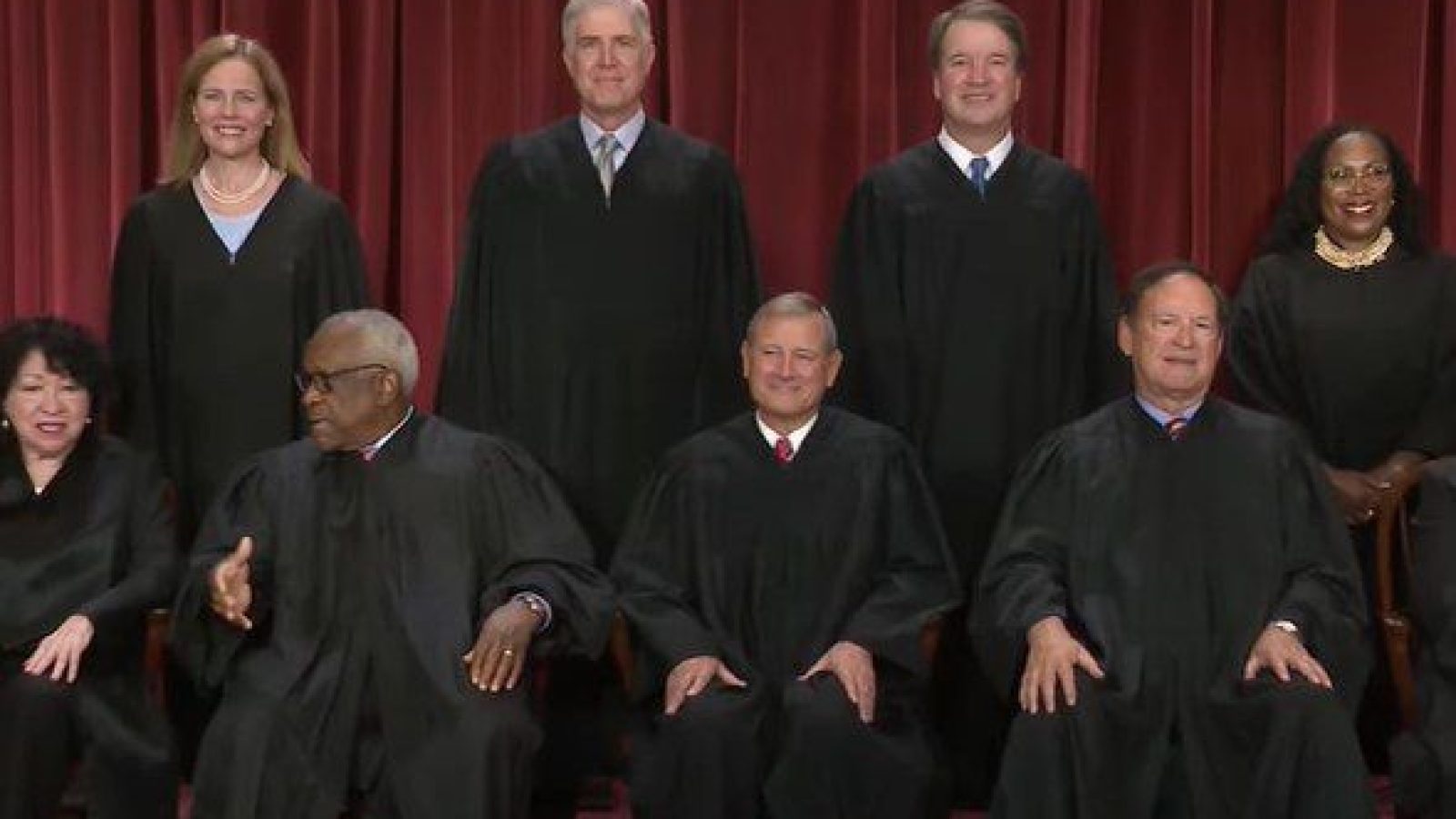On Thursday, the U.S. Supreme Court gave another win towards requiring ID to vote.
Their vote focused on an Arizona voter law that requires ID proof of U.S. citizenship to register to vote.
The funny thing is, that ID still isn’t required to vote, only to register.
The 5-4 decision came after a federal judge initially blocked the law in response to challenges from Biden’s administration.
The ruling arrives just in time for the upcoming Nov. 5 election.
With controversies overflowing Kamala’s campaign, it remains to be seen who will be the final Democrat nominee come Nov 5.
BREAKING: The U.S. Supreme Court has just voted to REINSTATE a provision from an Arizona law that requires voter applicants to provide documentary proof of citizenship when getting registered to vote.
This overruled the decisions of the lower court judges who blocked the law. pic.twitter.com/AsPhj1kgRD— WarriorsForPatriotism (@luckynik30) August 22, 2024
This is just the beginning. I expect we’ll see more rulings of this kind.
Voter ID is a must.
Reuters reports:
The U.S. Supreme Court on Thursday revived part of an Arizona voter law requiring documented proof of U.S. citizenship to register to vote, in response to a request from the Republican National Committee and Arizona Republicans.
The justices in a 5-4 ruling agreed to reinstate a provision of the law after a federal judge blocked it in response to legal challenges by Democratic President Joe Biden’s administration and advocacy groups.
The decision comes before the Nov. 5 election in which Democratic Vice President Kamala Harris is facing off against Republican former President Donald Trump, who continues to falsely claim that his 2020 election defeat was the result of fraud.
Arizona’s Republican-controlled legislature adopted new restrictions on voter registration in 2022. The law requires applicants who submit a federal registration form to provide evidence of U.S. citizenship to vote in presidential elections or vote by mail in any federal election.
Voter registrants who use a separate, state-created form face even tighter restrictions. Without proof of U.S. citizenship, state applications are rejected in their entirety, and officials who fail to do so face a minor felony charge under the law.
The Supreme Court’s ruling revived the restriction related to the state voter registration form, but kept intact a judicial decision blocking the provision that sought to tighten limits on the federal form.
Chief Justice John Roberts joined with fellow conservative Justices Brett Kavanaugh, Clarence Thomas, Samuel Alito and Neil Gorsuch to grant Republicans’ request in part, though Thomas, Alito and Gorsuch indicated they would have granted the entire request.
Liberal Justices Sonia Sotomayor, Elena Kagan and Ketanji Brown Jackson, along with conservative Justice Amy Coney Barrett, would have denied the request in full.
ADVERTISEMENTWhen Republican then-Governor Doug Ducey signed the legislation in March 2022, he said, opens new tab the measure balanced voting accessibility with election security.
“Election integrity means counting every lawful vote and prohibiting any attempt to illegally cast a vote,” Ducey said.
The Biden administration sued to block the Arizona law in July 2022, claiming it is superseded by a 1993 federal law called the National Voter Registration Act. The law says that states must register voters for federal elections after they submit the federal registration form, which requires a declaration of U.S. citizenship under penalty of perjury, but not documentary proof.
A separate legal challenge argued that the Arizona law violated a 2018 court-approved settlement requiring state election officials to register voters who lack documented proof of U.S. citizenship for federal elections, regardless of whether they use the federal or state form.
Arizona’s Supreme Court just ruled 5-4 that a law requiring proof of citizenship to vote can take effect.
The fact that this was controversial tells you a lot about what we’re up against. pic.twitter.com/mPVDHF82c3
— Vivek Ramaswamy (@VivekGRamaswamy) August 23, 2024
What’s curious is that it was Amy Coney Barrett that voted against this.
Amy Coney Barrett Sides With Liberal Justices on Voter ID Laws.
Blackmail, paid off, threats?
The Supreme Court ruled by a 5-4 margin to partially approve a request from the Republican National Committee that would make people in Arizona show proof of U.S. citizenship when… pic.twitter.com/vipDhPFtBq
— 🇺🇲Take a Stand 🇺🇲🙏 (@keepitwilder) August 23, 2024



Join the conversation!
Please share your thoughts about this article below. We value your opinions, and would love to see you add to the discussion!